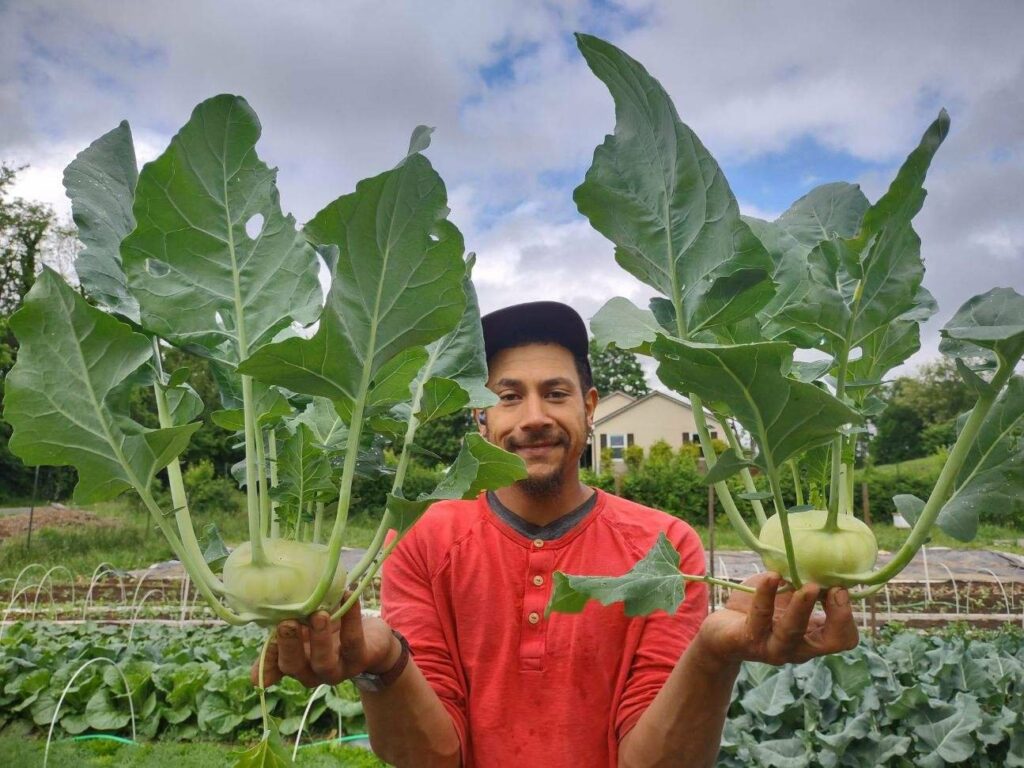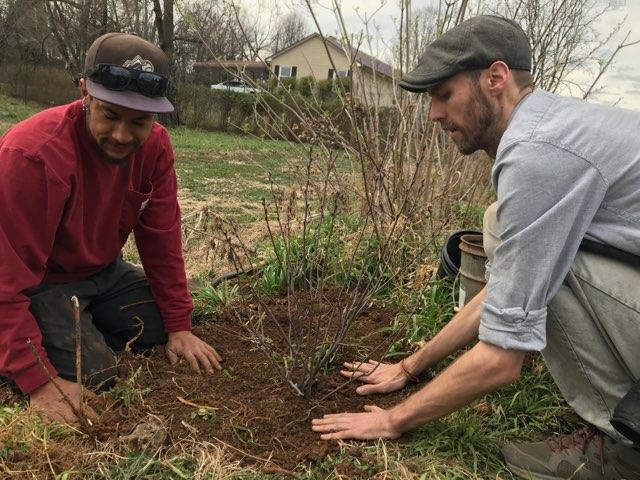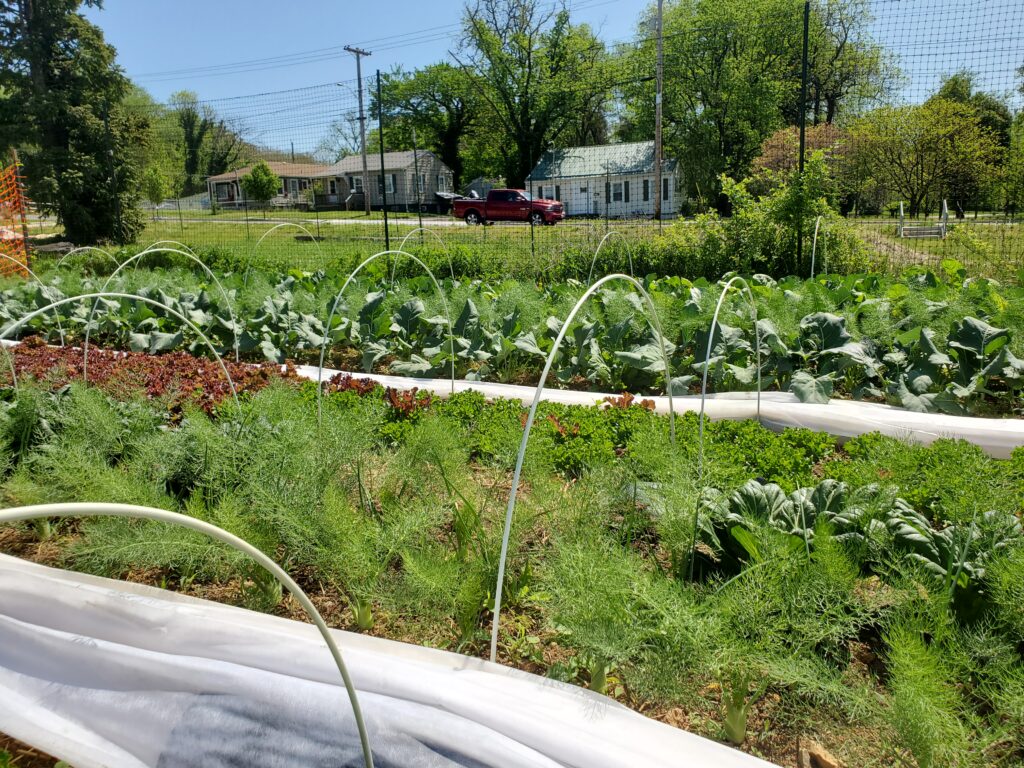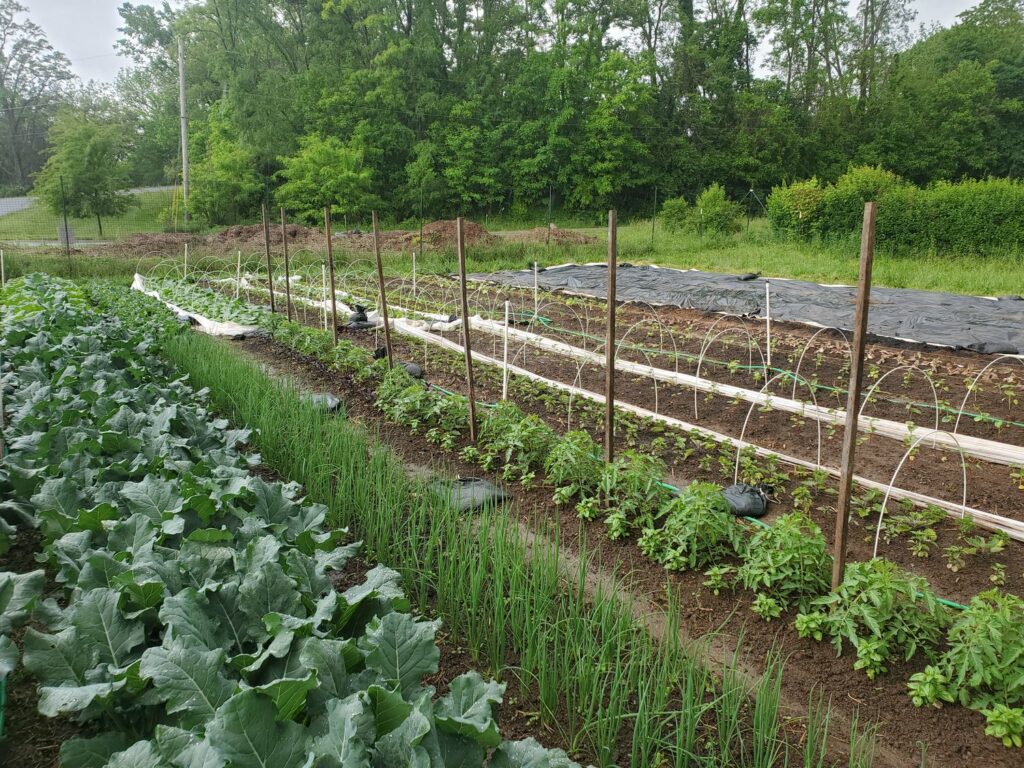
As the campaign to raise $426,250 to purchase Lick Run Farm gains momentum, the Harvest Collective, a Virginia-based collaborative farming group, is already hard at work preparing Lick Run for its new place in the Southwest Virginia Agrarian Commons. Along with Cam Terry, the head farmer at Garden Variety Harvests, the collective has been mowing grass, laying tarps, and completing small construction projects around the land.
With the help of the Harvest Collective, Cam is planning on transforming part of Lick Run Farm into a permaculture forest garden. “The idea is that we want to plant that area in a polyculture of food bearing plants that creates a fungally dominant soil and a nice shady canopy, a cool place to relax and support the ecosystem,” he said. Because the area set aside for the forest garden is not suitable for vegetable production, Cam sees it primarily as a “healing part of the farm.”

We want to plant that area in a polyculture of food bearing plants that creates a fungally dominant soil and a nice shady canopy, a cool place to relax and support the ecosystem.
“I like to refer to what they’re doing as kind of an intentional community light,” said Cam, referring to the Harvest Collective’s unique structure as a group of dedicated “members” with experience working on long-term projects such as orchard maintenance, fence building, and permaculture gardening. “Everybody gets to go home and sleep in their own beds,” he added, “but they come together and feel like they’re building something.”
In return for their help, Cam and Davey Stewards, the founders of Harvest Collective, agreed that members will have the opportunity to design, implement, and reap the fruits of the forest garden. “The arrangement we have with the Harvest Collective is unique,” said Cam, “and I think sets the stage for a collaboration in which both sides are getting what they want out of this. My desire is to get as much of this farm programmed as quickly as possible, and their desire is to participate in projects and then take home the fruit.”

Once the farm infrastructure is in place, Cam wants to extend volunteering opportunities to the community at large. “I want people to feel like this is a community farm—that is the goal,” said Cam. “Because I think that there’s not enough people growing local food. The more that people can see this as a viable way to spend their time and make a living, the more social impact we’re going to be able to make on the community. I want to give people an opportunity to get a taste whenever they can.”
The more that people can see this as a viable way to spend their time and make a living, the more social impact we’re going to be able to make on the community.
Ultimately, Cam sees Lick Run Farm as a space where community members can engage, collaborate, and experience food production, in an urban environment where agriculture is often marginalized. For Cam, teaching people the ins and outs of agricultural work is an important part of creating a more just and resilient food system.
“I think that there’s a big false separation between the food growing areas and the areas where people live, and never the twain shall meet, and I just think that’s totally arbitrary,” said Cam. “We’ve gotten to the point where people believe that they deserve to not interact with the food system beyond putting their money on the desk at the grocery store and taking their food home. And I think that’s a scary place to be. If only 1 percent of people know how to grow food for the rest of us, that’s a very vulnerable position we put the rest of society in. The more people who know how to do these things, even if they have full-time jobs or what not, and put them into practice, the more resilient our society becomes.”

We’ve gotten to the point where people believe that they deserve to not interact with the food system beyond putting their money on the desk at the grocery store and taking their food home. And I think that’s a scary place to be.
While Harvest Collective is helping Cam to make important long-term investments in the health of the Southwest Virginia Agrarian Commons, its future won’t be fully secured until $426,250 is raised to purchase Lick Run Farm. With the increasing scarcity and cost of farmland, farmers are dependent on the support of community organizations like the Harvest Collective—and potential donors like you—to expand the impact of small-scale agriculture. In return, these farms provide community members with the opportunity to learn about and experience food production firsthand, along with access to healthy, sustainably grown food. To support the Southwest Virginia Agrarian Commons, make a donation today.


